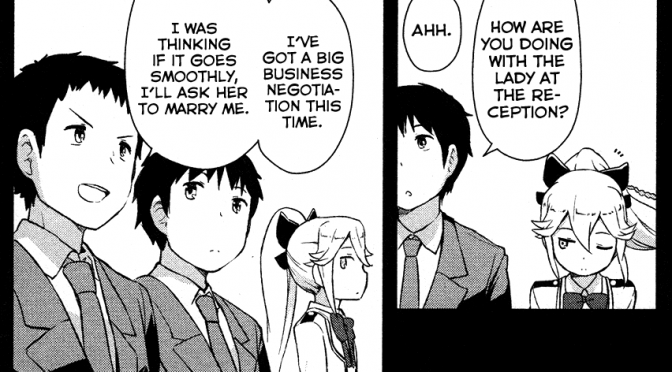Writers have a difficult balancing act in a lot of situations. There’s always a question of what’s too much vs not enough or too soon vs too late. Timing, substance, style – it all depends on whether or not we can actually put the right plot points at the right times and the right place. Honestly, we’re always having to question our every damn move because people are fickle and rarely as forgiving as we’d need. This is probably a good reason why so many of us are known to start drinking with the right stimuli. And, for some of the greats, the right stimuli happens to be sunrise or a lack of wanting a hangover.
One of the most important moments to be cautious about is the death of a character. If done poorly a lot of audiences will reject it all together, done well and they may begrudgingly love you for it. But when is a good time to do it? How do you make sure the death actually matters in the grand scheme? How do you make sure the audience feels this loss and doesn’t hate you as a writer for it? There is a lot of consideration that goes into building up these monumental scenes.
So, of course, most of us ruin it by letting everyone know what we’re about to do.
Raising Red Flags

Death Flags, normally applied to anime and related genres, actually exist in all forms of fiction. In simple terms, it would be the literary equivalent of a shitty poker face. Sure, you may have just discovered you’re holding a straight flush, but the fact you started giggling once you got the cards you needed means you’re probably not going to walk away a big winner. It doesn’t matter how well you’ve managed to handle the game up until that point, the fact you can’t keep it to yourself will make damn sure the rest of the table knows it’s time to get out.
It’s such an old trope that there has long been time for people to make another trope out of making fun of the original. We’ve all seen it, the affable character who adds a touch of humanity to otherwise bleak circumstances will talk fondly about how much he looks forward to finally retiring after all the years on the force. Even reading the sentence, you know that man’s not long for this world. In fact it long ago reached a point where someone not being turned into a cheese grater would feel really out of place. And there are a lot of variations. For instance, do you have a cop who turns out to be a family man? His life’s about to get a lot less heart warming.

Really, there are too many variations that tell everyone that death is looming. Someone missing home and making plans for their future? Dead. Someone talking fondly about something that seems oddly out of place but is wrapped in a warm, comforting nostalgia that makes it acceptable anyway? Dead. That guy’s wearing the wrong color shirt as he’s about to step out of a starship with three other named characters and someone making a cameo? Oh you can bet he’s dead.

And the thing is, writers know these things, we make fun of them ourselves. But more often than not people are going to put them there because they feel like they have to. Early on these things started out as surprising twists with little warning. But as time goes on these things started to become tropes until they fully evolved into cliches. So one would have to ask, if we’re so aware of it, why do we keep doing it?
Well, frankly, because we’re terrified that the following scene isn’t going to have a whole lot of meaning. We don’t want you to see a character die and simply feel nothing (see the red-shirts). So of course before that guy dies he’s going to say or do something that makes you feel horrible about the event. It’s a cheap pull at the heart strings to ensure that no one’s going to see the event and yawn at it. The problem is that it stopped working that way a long time ago. Now people’s first reaction isn’t shock or distress but a pressing need to take credit for figuring it out.
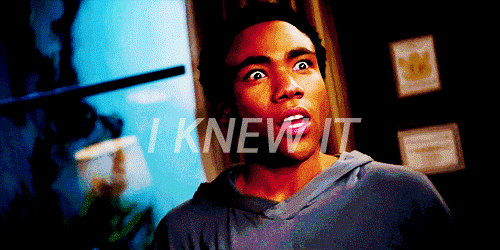
And, generally, that’s not the reaction you were hoping for. So, how do you go about avoiding that? Others have clearly avoided it in the past, and there’s been a lot of effective methods I’ve seen. After all, we’re professional bullshit artists, someone had to find a good way to hide their bullshit. And the first method I’ve seen work involves…
Wave them AFTER the death
The need to create a moment that makes people feel the true impact of a loss creates a bit of a tricky problem. Through simple details it’s easy to make people go from simply feeling bad to being crushed by the implications of the event. But that requires they don’t see it coming, because being crushed generally requires a surprise. The bigger that surprise, the more people are going to begrudgingly give you credit for it later.
But it’s possible to make these events sink in long after the fact. This is true both in fiction and in real life. Maybe you’ve known someone that you didn’t realize the full story of until it was too late. How many of us have found those boxes in the closet that told us about a life we never knew about departed family and friends? The truth is, these things can apply even to characters in stories. If you’re about to tip off some deep, personal information about a character you know you’re going to kill in a few pages or a couple scenes – let people discover it when it’s all too late.
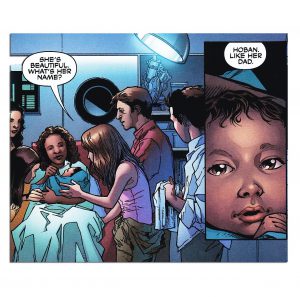
Some who are prone to these tip offs would feel that it would diminish the impact of the event, but the truth is quite the opposite. The realization that something was missed about the character and that there was more to them than everyone expected hits harder after they realize there’s no more opportunity. A great example of this is Professor Snape, who went from looking like the greatest monster of Hogwarts to being one of the bravest men in the story. Sure, he could have revealed it long before his death, but by revealing all of his deep dark secrets after the death…
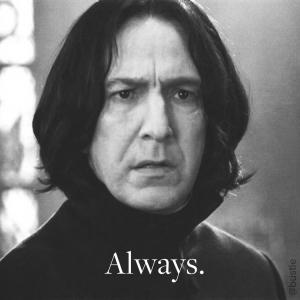
Some of you probably still tear up about it to this day.
Don’t wave them at all
Alternatively, you could just avoid them all together. The reason why Snape needed to have his secrets revealed after his death is because, before that death, you needed to believe he was a really sleezy guy. But the fact of the matter is that a lot of characters who have secrets revealed or go into depth on their hopes for the future aren’t characters who need that sudden twist. They’re the guys who are just there for the sake of pulling at your heart strings and they’re practically built to die. So, why not aim for killing a character who was there to live?
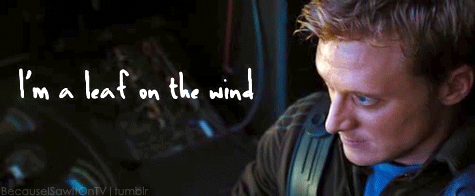
One of the bigger reasons for George RR Martin’s success is that he tends to kill people we’d normally think are safe from such untimely ends. Well, that and he tends to do it in bulk at otherwise happy locations like weddings. Is it because he secretly hates joy? Possibly. Does he dislike the idea that you feel safe and comfortable? Let’s be honest, yes. But most of all he did it for one very important reason: because in the real world, friends, loved ones, and heroes can die at any time – heroes most of all.

So, maybe the idea is to avoid having to wave these flags by making sure that the person who is about to die is someone the readers or viewers already know and love. Sure, that hurts you just as much as it hurts them, but that’s how you know it works. In fact, the fact it hurts you at all is probably a good sign because, if you’ve done well at building these characters, you’re way more ready to accept their death if you can actually write it down. Most people I know still get angry at character deaths that happened years (sometimes even decades) ago. The person who created them had to get over the idea to even put it on the page – no one else gets that choice.
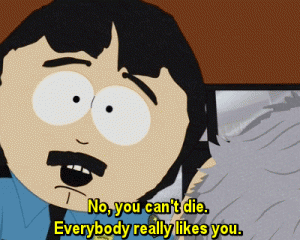
But if these don’t work, let’s assume dignity’s not your thing. You could also try…
Waving ALL the flags
Sometimes, it’s hard to avoid tipping your hand and letting the audience know you’re up to something. Generally, people should learn how to avoid doing it, but sometimes that’s hard. Some people simply just can’t contain themselves. And for those people the answer is to stop trying to contain it at all.
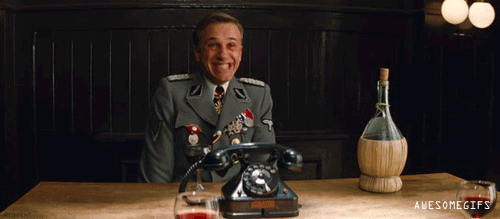
Instead, what you can do is create a magnificent smokescreen of bullshit. While it’s undoubted that one character waving the death flags are going to tip people off – everyone waving death flags at the same time are going to throw them wildly off. There’s really two ways you can go about this, either by making it so the death flags are just moments in life and aren’t really all that important or lamp-shading the hell out of it and waving them all for comedic effect.
Either of these really has their merits, it all depends on what you’re looking for. Toning it down for a serious story means that the first couple are going to be false flags, moments that would normally get someone killed but are strangely not turning up any results. Maybe everyone ends up talking about their future plans. Maybe there’s a guy early on who plans to retire and actually gets to (while another guy dies later on). Maybe everyone is just really open and caring in this place and you would hate to see any of them die. There are so many roads to take and every flag waved makes the next flag just that less likely to be believed by the audience before one finally lands.
But then, if the lack of being able to contain yourself is strong enough, I assume you’re someone who just wants to mess with the audience. In those cases, it may be appropriate to go ahead and just wave all of them in such obvious fashion that the audience knows you’re screwing with them. Don’t worry, they won’t get angry, because they’re kind of sick of the trope too. And, if played right…
Even death can sometimes be funny.
(I write novels, no major death flags there. On the other hand, on certain days I worry my twitter account is littered with them.)


